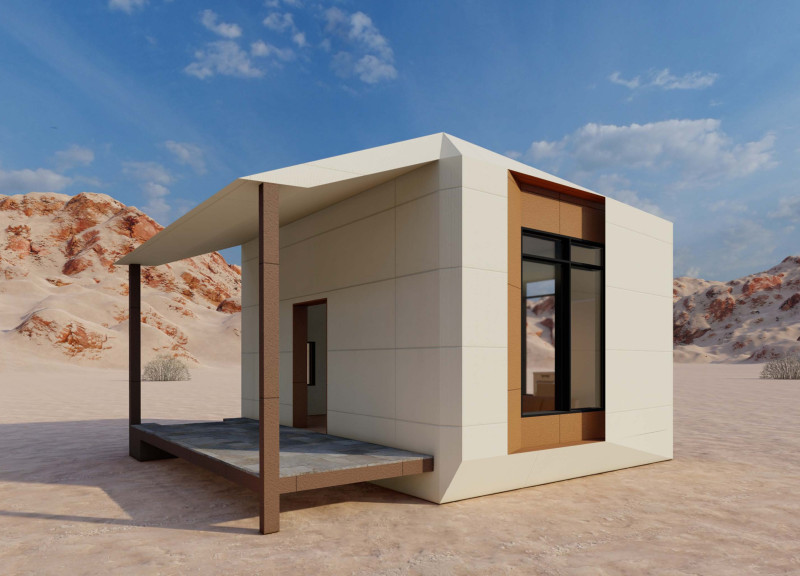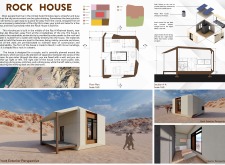5 key facts about this project
Sustainable Materiality and Design Integration
The Rock House employs prefabricated concrete panels for its structural framework, which provides durability and facilitates rapid construction. The incorporation of large glass windows maximizes natural light and provides views of the surrounding desert landscape, fostering a strong connection between the occupants and their environment. Wood accents are utilized around the windows and porch areas, establishing a warm contrast to the concrete surfaces. Solar panels are installed on the roof to harness renewable energy, ensuring minimal reliance on conventional energy sources. Additionally, a water well system is incorporated, enabling self-sufficiency in water supply.
Functional Organization of Space
The spatial composition of the Rock House is thoughtfully arranged into public and private zones. The public area includes the living room, kitchen, and dining space, designed to encourage interaction among occupants. This openness is balanced by the creation of private zones that consist of a bedroom, working desk, and bathroom, providing necessary privacy and tranquility. The innovative zoning allows for varied experiences within the same structure, catering to both social and individual needs.
Unique Architectural Approaches
The design of the Rock House stands out for its deliberate use of materials and layout aimed at harmonizing with the surroundings. Unlike typical residential designs, it prioritizes functionality and sustainability over ornamental features. The choice of prefabricated materials not only streamlines construction but also minimizes the building's environmental impact. The configuration respects and adapts to the natural topography of the desert, ensuring that the structure integrates seamlessly into its landscape.
For those interested in exploring the Rock House in greater detail, reviewing the architectural plans, sections, and overall design concepts will provide deeper insights into the project’s innovative approach and methodology. The unique architecture exemplifies a growing trend towards combining aesthetic sensibility with environmental responsibility in residential projects.























